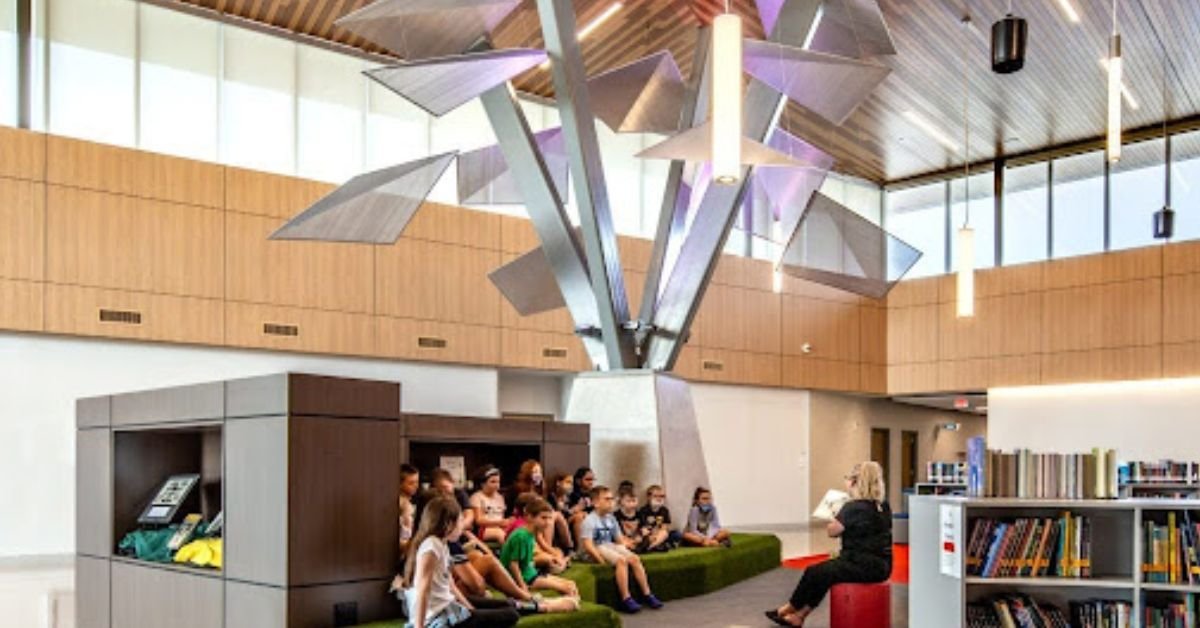Education
The Joy of Themed Word Search Puzzles

Word search puzzles have been a favorite pastime for many, offering a delightful blend of fun and challenge. While traditional word searches are enjoyable, themed word search puzzles take the experience to a new level. By focusing on a specific topic, these puzzles not only entertain but also educate and engage players in unique ways. In this article, we’ll explore the appeal of themed word search puzzles, their benefits, and some creative ideas to get you started.
Engaging the Mind with Themes
Themed word search puzzles are more than just a collection of random words; they are crafted around a central idea or topic. This thematic approach makes the puzzles more interesting and engaging. For instance, a word search puzzle on marine life would include terms related to oceans, fish, and aquatic plants. This specificity not only piques curiosity but also encourages players to think more deeply about the subject. As a result, themed puzzles can be a great tool for learning, whether for children in school or adults looking to expand their knowledge.
Educational Benefits
Themed word search puzzles offer numerous educational benefits. For one, they enhance vocabulary by introducing players to new words within a particular context. This contextual learning helps in better retention and understanding of new terms. Additionally, these puzzles improve cognitive skills such as concentration, pattern recognition, and problem-solving. They can also be used to reinforce concepts taught in educational settings, making learning a more interactive and enjoyable experience. Teachers and parents often use themed word searches to supplement lessons on various subjects, from history to science.
A Creative Outlet
Creating themed word search puzzles can be a highly creative endeavor. Puzzle creators get to brainstorm topics, select relevant words, and design the layout of the puzzle. This process can be incredibly satisfying and a great way to express creativity. Moreover, themed word searches can be tailored to any interest or occasion. From holiday-themed puzzles to those based on popular books or movies, the possibilities are endless. This customization makes them perfect for events, parties, and even marketing campaigns, adding a fun and interactive element to any setting.
Social and Recreational Use
Themed word search puzzles are also excellent for social and recreational use. They can serve as icebreakers at gatherings, providing a fun activity for guests to enjoy together. Many people find them relaxing, making them a great way to unwind after a long day. For families, working on a themed word search puzzle can be a bonding activity, offering a chance to collaborate and communicate. Additionally, themed puzzles can be part of larger events, such as scavenger hunts or educational workshops, making them versatile tools for engagement.
Customizing for Personal Interests
One of the greatest advantages of themed word search puzzles is the ability to customize them according to personal interests. For instance, if you are passionate about gardening, you can create or find puzzles with themes around flowers, plants, and gardening tools. This personalization makes the puzzles more enjoyable and relevant to the player. Additionally, personalized puzzles can be fantastic gifts. Creating a word search that includes terms meaningful to the recipient, such as inside jokes or significant dates, adds a thoughtful and unique touch to your gift-giving.
Enhancing Team Building
In professional settings, themed word search puzzles can be an effective team-building tool. They encourage teamwork and collaboration, as colleagues can work together to find the words. This collaborative effort can help break down barriers, improve communication, and foster a sense of camaraderie among team members. Incorporating company-specific themes, such as industry jargon or product names, can make these puzzles even more relevant and engaging. As a result, employees not only enjoy a fun activity but also reinforce their knowledge and connection to their workplace.
Accessible for All Ages
Themed word search puzzles are universally appealing and accessible to people of all ages. Younger children can work on simpler puzzles with basic themes, while adults can tackle more complex ones with advanced vocabulary. This versatility ensures that everyone, regardless of age or skill level, can find a puzzle that suits them. Moreover, themed word searches can be a great way to bring different generations together. Grandparents and grandchildren can bond over a shared activity, finding common ground in a fun and educational pursuit. This broad appeal makes themed word search puzzles a timeless and inclusive form of entertainment.
Endless Possibilities
In conclusion, themed word search puzzles offer a world of possibilities for entertainment, education, and creativity. They engage the mind, enhance vocabulary, and provide a fun and interactive way to learn about various topics. Whether you are a teacher looking for an educational tool, a parent seeking a fun activity, or simply someone who enjoys puzzles, themed word searches are sure to delight. The next time you’re looking for a new way to challenge yourself or entertain others, consider diving into the world of themed word search puzzles. You’ll find that they are not only a great way to pass the time but also a valuable resource for learning and creativity.
Education
Creative Ways to Make Moving Easier for College Students

Introduction
Preparing to leave home for college is a significant life event that often comes with a whirlwind of emotions. It’s a time filled with anticipation, uncertainty, and countless to-dos that can feel daunting without the right approach. Moving away for college can feel both thrilling and overwhelming, especially when you consider all the steps involved—from sorting and packing to actually settling into a brand-new environment. For many students, this transition marks their first taste of independence, making it both a milestone and a challenge. Successfully navigating this process requires careful planning, resourcefulness, and a positive attitude. By taking advantage of affordable student moving services early in the process, you can cut down on both stress and expenses while freeing up time to enjoy the start of your new adventure. Smart organizing, space-saving solutions, and the support of friends or family can turn what might seem like an overwhelming task into a memorable and positive experience. With the right preparation, your college move becomes more than a chore—it becomes the first step in a transformative journey. Embrace the changes ahead, knowing each box packed brings you closer to new growth and opportunity.
Start with a Comprehensive Checklist
The moving process begins long before you load up your car or book a van—preparation is the secret to a smooth move. Creating a detailed checklist is key to ensuring you bring everything you need without overpacking or forgetting essentials. Divide your list into categories such as bedding, toiletries, clothing for various weather conditions, electronics, important documents, and academic supplies. Don’t forget to include anything unique to your campus like shower caddies or specialized storage items for your new space.
To keep things manageable, classify your items as “must-haves,” “nice-to-haves,” and “non-essentials.” This way, if you find yourself tight on space, you know what can be left behind. Smaller pre-move tasks like confirming move-in and orientation dates, requesting any necessary paperwork, arranging transportation, and getting in touch with roommates can go a long way to reduce last-minute panic. For students moving long distances, check deadlines for dorm check-ins and off-campus housing lease agreements. Every item you check off provides peace of mind as moving day progresses.
Embrace Space-Saving Packing Techniques
When moving into a typical college dorm or apartment, maximizing every inch of space is crucial for comfort and convenience. While it’s tempting to bring everything, the key lies in smart packing and only bringing what adds value to daily college life. Start with these proven space-saving hacks:
- Roll your clothes: Rather than folding, rolling clothes saves space in suitcases or bins and helps minimize wrinkles. This tactic is a favorite among seasoned movers and travelers alike.
- Use vacuum-sealed bags: Vacuum bags are unbeatable for compressing bulky items like blankets, jackets, and pillows. These bags are convenient for college students in places with wide seasonal temperature changes.
- Opt for stackable storage bins: Clear, stackable bins are a lifesaver for transporting items and organizing your new space. When you can see what’s inside, unpacking is much simpler, and these bins fit easily under beds or in closets.
Group similar items together and label all boxes clearly by room or type so unpacking takes less time. Keep a dedicated bag or bin with “first-night essentials” like toiletries, a change of clothes, basic snacks, and chargers—this makes the first night less stressful and more comfortable. Taking time to pack efficiently now will pay off with an easier move and a less cluttered start at school.
Explore Affordable Moving Options
Moving expenses can mount up faster than you might expect, but there are plenty of student-friendly solutions to keep costs in check. Using your own vehicle or borrowing one from a family member or friend is usually the most cost-effective solution for local moves or minimal belongings. If your haul is more substantial, look into renting a small moving truck or trailer; companies like U-Haul offer flexible options ideal for short-term needs.
Many moving companies specialize in student moves, offering both shipping for boxes and affordable, short-term storage. Services like these are particularly helpful if your campus is out of state or transitioning between summer and fall semesters and can’t take everything home. Don’t forget to compare prices and look for student discounts, as many businesses run college moving specials around move-in season. Consider networking with new classmates to split rental or storage costs, which is often cheaper and more fun.
Engage Friends and Family
While moving can feel like a burden, involving friends and family not only lightens the workload but enhances the entire experience. Invite friends over, put on a great playlist, and share pizza or your favorite take-out—you might even create some inside jokes and memories you’ll cherish for years. This support system transforms what could be a stressful day into a group effort where everyone feels included and needed.
Delegating tasks is also easier when there’s more than one person—assign someone to manage logistics, ask another to deal with electronics and small furniture, and assign your strongest helpers to heavy lifting. The process goes faster, smoother, and provides a perfect opportunity to bond or say goodbye before you leave for school. Returning the favor when friends move is a great way to maintain connections and pay it forward.
Stay Mindful of Safety and Health
- Proper lifting: Always bend at the knees and lift with your legs rather than your back to avoid injuries. Means like dollies or moving straps can make a difficult job manageable—even for heavier objects.
- Hydrate and pace yourself: Particularly during hot weather, make a point to take regular water breaks, eat energy-boosting snacks, and recognize when it’s time to pause. Overexertion is avoidable with planning.
- Wear appropriate clothing: Closed-toed shoes and comfortable, breathable clothing are necessary. Avoid anything that might cause you to trip or restrict movement as you lift and carry.
It’s important not to push through fatigue: take breaks and know your limits. Asking for help with awkward or heavy objects will help prevent injuries and ensure the move remains safe for everyone involved.
Utilize Campus Resources
College move-in days are often carefully coordinated to ease the transition for new students and their families. Many campuses have streamlined the process with the help of orientation leaders, residence hall staff, and student volunteers who assist with unloading vehicles and carrying items into dorms. Some schools offer helpful tools like large rolling carts, designated unloading zones, and temporary storage options for early or overflow arrivals. Understanding what services your specific college provides—typically outlined in pre-arrival emails, welcome packets, or student handbooks—can reduce confusion and make the experience smoother and less overwhelming.
Beyond move-in logistics, orientation events are a valuable introduction to campus life. Attending these programs familiarizes you with key locations such as dining halls, academic buildings, and student service centers. You’ll also learn about resources like tech support, maintenance requests, and where to store additional belongings if needed. Most importantly, orientation helps build community—offering opportunities to meet peers, join student groups, and begin forming lasting friendships and a reliable support system.
Plan for Unpacking and Organization
Arriving at your new dorm or apartment is only the halfway mark; how you unpack and organize will impact your comfort all semester long. Begin with the essentials: unpack bedding, toiletries, and chargers first so that you’re set for your first night. Assign each item a specific spot as you go—this cuts down on clutter and makes it easier to settle in.
- Unpack essentials first: These items will keep you comfortable and connected as you settle in.
- Organize as you go: This approach streamlines the process and helps maximize even the smallest rooms or dorm closets.
- Personalize: A couple of framed family photos, a soft rug, or some string lights can make a new space feel like yours.
Staying on top of organization as you unpack means your space will be set up the way you want it from the start, so you can focus on making friends and getting familiar with campus rather than searching through piles later.
Stay Flexible and Positive
Even with careful preparation, move-in day can still bring unexpected surprises. These hiccups can easily throw things off course, from delayed arrivals to misplaced essentials or sudden changes in plans. However, staying calm and adaptable can make a world of difference. Flexibility is a powerful tool during times of transition, helping you stay grounded while navigating the unpredictable. Rather than fixating on what went wrong, focus on finding quick solutions, keep a sense of humor, and don’t hesitate to lean on others for support. Every moving experience teaches valuable lessons—whether it’s mastering time management, learning how to prioritize, or building resilience under pressure.
To ease the transition, begin the process early and pack intentionally, using checklists and space-saving techniques. Take advantage of available resources, including student services or community support. Most importantly, surround yourself with helpful friends or family. With thoughtful planning and a positive attitude, you’ll not only survive move-in day—you’ll thrive as you step confidently into this exciting new chapter.
Education
Innovative Approaches to Enriching Early Childhood Education

As educational paradigms shift to meet a rapidly changing world, early childhood programs are shaped by research and creative models. Nurturing a child’s curiosity is as important as academic rigor, ensuring engaging, responsive, and meaningful learning. Understanding key components of enriched early education helps parents, educators, and communities make informed choices to support each child’s potential.
The earliest years of a child’s life are critical in shaping the academic, social, and emotional foundation they will build upon for years. During this formative period, searching for exceptional educational experiences becomes essential, leading many families to consider private school enrollment as a pathway toward enriched early childhood learning. Innovative strategies, supportive environments, and collaborative approaches are at the heart of successful early education—paving the way for lifelong curiosity and success.
Why Early Childhood Education Matters
Early childhood education builds the foundation for cognitive, emotional, and social development. High-quality programs prepare children for school and reduce academic struggles later. Structured, nurturing environments enhance language, math, and social-emotional skills, affecting future learning and growth. Beyond academics, such settings boost confidence, resilience, and curiosity, fostering independent thinking and adaptability vital in a changing world. Engaged children become adults who collaborate, innovate, and communicate effectively.
Keys to Engaging Young Learners
Engagement in early learning goes beyond passive facts; it ignites imagination and exploration. Activities like storytelling, play, and practical tasks foster a love of learning. Educators tailor activities to each child’s interests, developing various skills and styles. Success depends on a flexible curriculum encouraging questions, projects, and collaboration. When education feels personal, students see learning as an adventure, not a chore.

Collaborative Learning and Social Skills
Group-based learning activities are powerful tools for building communication, empathy, and teamwork skills from an early age. Students engage in collaborative tasks and learn to listen actively, share ideas, resolve conflicts, and respect different perspectives. Such experiences are crucial for healthy identity development and help lay the foundation for competent social interaction in adulthood.
The Role of Parental Involvement
Parental involvement is crucial for early childhood success, with strong outcomes when families partner with teachers to reinforce learning and create supportive homes. Regular communication builds trust and allows early intervention. Simple acts like reading, playing educational games, and encouraging curiosity support development. When parents show enthusiasm for learning, children tend to develop positive self-esteem and perseverance, according to studies.
Play-Based Learning Strategies
Play is universal for children, fostering problem-solving, decision-making, and emotional skills through activities like imaginative play, building, and arts. An ideal setting balances free and guided play, encouraging discovery, choices, and self-control. Play-based learning builds self-regulation, creativity, and adaptability, while role-playing and cooperative games teach societal roles and empathy. Combining structured and child-initiated play provides a well-rounded early education approach.
Integrating Technology Wisely
In an increasingly digital world, technology can complement traditional learning when used thoughtfully. Interactive games and educational apps capture learners’ attention, reinforce concepts, and foster digital literacy. Quality over quantity is key; digital tools should focus on engagement, problem-solving, and creativity rather than passive screen time. Educators guide children’s tech experiences by choosing age-appropriate apps and modeling responsible digital citizenship. Combining technology with face-to-face activities ensures it enhances understanding without replacing authentic interaction.
Assessing Growth Beyond Grades
Assessment is most effective for young learners when it includes observational notes, portfolios, and self-assessment, providing a comprehensive view of progress across cognitive, social, and emotional areas. Offering constructive feedback builds self-confidence and fosters ownership of growth. This holistic approach helps educators and parents celebrate milestones and address challenges individually, supporting healthy development.
Long-Term Benefits of Early Enrichment
High-quality early education benefits children beyond elementary years, including advanced literacy and numeracy skills, higher graduation rates, improved physical and mental health, and increased lifetime earnings. As society evolves, fostering innovation and adaptability in young citizens is crucial. Investment in early enrichment benefits communities and future generations, creating a cycle of opportunity, achievement, and well-being.
Conclusion
Early childhood education is crucial for lifelong success. It combines academic readiness with social, emotional, and creative development. It equips children with confidence and adaptability to face future challenges. Investment in early years cultivates capable, compassionate, and resilient individuals, shaping healthier societies and stronger economies. Prioritizing education is an investment in a brighter, more equitable.
Education
How Environment Shapes Academic Performance

Academic success at university is influenced by more than just textbooks and lectures; the environments students inhabit play a crucial role in determining how effectively they learn, concentrate, and thrive. From physical surroundings to emotional atmosphere, various environmental factors can either support or hinder academic performance. Understanding these influences is essential, especially for students settling into new accommodation or navigating the demands of independent study.
Physical Environment and Cognitive Function
The physical conditions of a learning space, such as lighting, noise levels, air quality, and temperature, have a direct impact on a student’s ability to concentrate and retain information. Findings from a large-scale study involving over 21,000 students showed that test scores were higher in daylit classrooms, highlighting a clear link between daylight availability and improved human performance.
Similarly, exposure to excessive noise, whether from traffic, roommates, or shared facilities, can significantly impair working memory and reading comprehension. A quiet, well-ventilated space with ergonomic furnishings helps maintain mental clarity, allowing students to focus for longer periods without fatigue.
Design of Study and Living Spaces
The layout and quality of accommodation also influence study habits. Cluttered or cramped environments can increase stress levels and make it harder to focus. On the other hand, a well-organised room with designated zones for sleep, study, and relaxation encourages structure and discipline, both vital for academic consistency.
Modern student accommodation often incorporates shared study lounges, individual workstations, and communal areas that support different learning styles. These spatial cues promote productive behaviours while also providing variety, which can prevent burnout and increase engagement.
Social Environment and Academic Mindset
A student’s immediate social surroundings, including flatmates, peers, and neighbours, can shape attitudes towards learning. Environments that foster collaboration, mutual respect, and shared academic goals often lead to improved study habits and motivation. For example, living in a residence where others prioritise study can create positive pressure, encouraging similar behaviour.
By contrast, environments marked by social tension, distractions, or a lack of community can reduce concentration and increase feelings of isolation, particularly for international students adapting to new cultural norms. The right balance between privacy and community is essential for maintaining focus without sacrificing social support.
Emotional Climate and Psychological Safety
Students are more likely to excel academically when they feel safe, secure, and emotionally supported in their environment. Factors such as feeling at home, the ability to personalise one’s space, and having access to support networks all contribute to a sense of wellbeing, which is foundational to learning.
Stressful environments, including those with poor maintenance, unpredictable disruptions, or limited personal space, can raise cortisol levels and negatively affect memory and information processing. Creating a calming, affirming space helps reduce academic anxiety and supports better cognitive function.
Proximity and Access to Resources
The location of student accommodation affects more than just convenience; it impacts energy levels, time management, and academic participation. Living near campus, libraries, or study hubs can reduce commute-related fatigue and free up hours for coursework and rest.
Reliable access to high-speed internet, printing facilities, quiet zones, and nearby amenities also shapes study outcomes. In cities like Sydney, where travel times can vary widely, having accommodation within easy reach of both educational and everyday essentials, like those available through iglu.com.au, supports a seamless academic lifestyle.
Shaping Success Through the Right Environment
The environment a student lives and studies in is far more than a backdrop; it is a dynamic influence on academic performance. Whether it’s the physical setup of a room, the culture of a shared space, or the emotional tone of a household, every environmental element contributes to how well a student learns, focuses, and achieves. By recognising and prioritising environments that foster concentration, stability, and well-being, students can set themselves up for academic success.
-

 Entertainment8 months ago
Entertainment8 months agoExplore The Kristen Archives: A Treasure Trove Of Stories & More
-

 Business2 years ago
Business2 years agoWhat is O Farming: How to Make Money Online and Its Start-Up Benefits
-

 Law9 months ago
Law9 months agoProtect Your Vehicle with These Smart Motor Insurance Strategies
-

 Entertainment2 years ago
Entertainment2 years agoSandra Orlow: Exploring the Life and Legacy of a Cultural Icon
-

 General1 year ago
General1 year agoBaby Alien Fan Bus: Watch Parts 2 & 3 on Twitter, Reddit!
-

 Technology2 years ago
Technology2 years agoGeekzilla Radio: Your Portal to the Ultimate Geeky Adventure!
-

 General1 year ago
General1 year agoDiana Nyad & Bart Springtime: A Swim to Success
-

 Business2 years ago
Business2 years agoTex9.Net Crypto: Fast, Secure International Money Transfers with Competitive Rates
